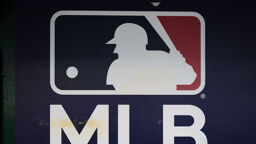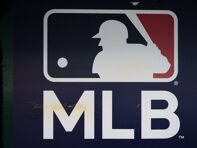The coronavirus pandemic is brutalizing minority communities. Black Americans are dying of the virus at much higher rates than white people, further exposing our society’s brutal inequities. For WNBA guard and social justice advocate Layshia Clarendon, the alarming reality is a call to action.
Clarendon is part of the Masks for the People campaign, which seeks to secure protective masks, sanitizers and testing kits to underserved communities. The project is in partnership with the LIVE FREE campaign and Black Church Action Fund. Together, the organizations form a 40-year partnership and network of congregations addressing the issues of systemic racism and exclusion.
Several sports figures and celebrities, including Steve Kerr and W. Kamau Bell, are promoting Masks for the People as well. Clarendon says the involvement of Pastor Michael McBride, the director of LIVE FREE, is especially important to her.
“It’s really cool to see the work Pastor Mike does and those who truly follow the message of Jesus: caring for the least, caring for the most marginalized,” she said to Outsports. “For me, it’s so close to the core of the person I want to be and I try to follow the most in my life. So it was like, why not get involved? This is a great cause and absolutely something we should be doing.”
Join @wkamaubell @SteveKerr @ImEricaCampbell + friends as we launch #MasksForThePeople, a humanitarian effort to bring FREE masks, hand sanitizer kits to incarcerated, formerly incarcerated, violence interrupters & elderly in most vulnerable black & brown neighborhoods #BeatCOVID pic.twitter.com/jneI5VpktG
— Michael McBride (@impastormike_) April 5, 2020
To accomplish its goal, Masks for the People is building its own supply chain of masks and making hand sanitizer from scratch. They are providing the material to impoverished urban and rural communities across the country, based on data regarding disproportionate COVID-19 infection rates among black and brown people.
There are multiple reasons why minority communities are experiencing high COVID-19 infection rates, beginning with the segregation and concentrated poverty within them. Black Americans are more likely to work service sector jobs, least likely to own a car and least likely to own their homes. As a result, they are forced to live in close confines, and still take public transportation to their essential service jobs — risking them to higher rates of exposure.
In addition, black Americans have lower levels of health insurance coverage compared to white Americans. While Pastor McBride understands philanthropic campaigns aren’t going to make up for centuries of racist policies and disenfranchisement, he’s trying to fill in when he can, such as supplying masks. Prices for face masks for and other essential items are surging, making them inaccessible to people with low incomes.
“People are literally profiteering off a humanitarian pandemic crisis, so we’ve had to muscle our way in,” he said.
The campaign has been able to raise capital quickly, with Twitter CEO Jack Dorsey donating $1 million to the cause. For each $10,000 raised, the campaign says it will create 5,000 kits containing masks, sanitizer and other equipment.
Clarendon, the WNBA’s first gender non-conforming player who uses both she/her and they/them pronouns, has always used her platform for advocacy. Most recently, she served on the players’ committee that negotiated a new queer-friendly collective bargaining agreement with the WNBA. Earlier this year, the eight-year veteran signed with the New York Liberty as a free agent.
Clarendon says the coronavirus is exposing the gross inequalities of the U.S., and hopes this serves as a landmark moment for change.
“I think it lifts the bandaid or the rock on all of the ugly muck and systematic issues,” she said. “We’re going to have decisions based on who gets a mask — whether you’re incarcerated or not, whether you’re elderly or not. People’s lives could be disposable based on circumstances and things like where you live and what you look like. This is just another one of those things in America where it’s like, ‘It’s been here, it’s not going away.’ We’re fighting to make it go away. It gives me a lot of hope when this stuff comes up, but it’s also wonder, ‘What are we going to do?’”
As we climb out of the pandemic and the 2020 election approaches, Clarendon says she wants to focus on voting rights, believing voter suppression is one of the biggest obstacles to progressive causes. Since the Supreme Court invalided a key component of the Voting Rights Act, at least 1,600 polling locations, mostly in minority communities, have closed across the U.S. In the recent Wisconsin Primary, which the state’s Republican Supreme Court insisted on holding during a pandemic, only five polling places were open in Milwaukee — the state’s biggest city and center of its black population.
“Closing our access to the vote has always been one thing that’s stopped progressive candidates from winning,” Clarendon said. “I think that’s one of the scary things moving into November. Maybe we can move into mail voting, online voting. That’s my hope for the next fight moving forward.”
But right now, Clarendon is focused is delivering materials to those who need them most. Comfortably quarantining with her wife in the Bay Area, Clarendon says she couldn’t just sit and watch others in her community suffer.
“We have safety and our basic needs all met,” she said. “It’s not enough to just sit at home and be like, ‘Cool, we’re good,’ while other people are dealing with so many things.”







































